SNP’s Performing A Physical Exam: Who Should Do It And Who Shouldn’t…
Before any case is monitored, all pertinent patient history, signs, symptoms, physical exam findings and diagnostics should be gathered, documented and relayed to any oversight physician that may be on the case. While I’m sure a couple will come out of the woodworks, I think you’ll agree that it might be hard to find someone that does not believe this to be best practice. It is very much part of our job before the case starts.
But how that data is collected still seems to be a debate in our community. Sometimes even a little heated.
What I’d like to do is present different opinions that I have heard when speaking to people in neuromonitoring, as well as some of the rebuttals given when there is a disagreement. Instead of me trying to persuade you to choose the opinion that I would give on the subject, I’m going to try to make a persuasive argument for each side.
So read through them all and vote at the end. The value in this post is only in the number of votes across the community. So please take the time to vote. It’s anonymous, so nothing to worry about.
Examination Ed – We should all be doing an exam on our patients.
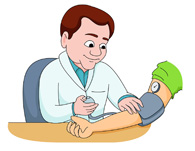
“Doing a good history, looking through the chart, examining imaging and lab work is all part of our work up, but we also need to perform a physical exam on the patient. It’s crucial for me to know what the integrity of the nervous system is as it relates to the case. If I am going a cervical case, you can bet that I’ll be checking motor and sensory function. If I am doing a craniotomy, I’m assessing areas of the brain that are pertinent to the surgery. That might include visual fields for some cases, sensory or conductive hearing loss in the next case and speech patterns in others. The surgeon has asked me there to provide a service, and I intend to do it at the highest level possible. That’s why s/he ask me and not the competitor down the road. I can tell you a couple stories about times I’ve picked up on something that was overlooked. That’s what it means to be a critical part of the surgical team.”
Basic Exam Billy – We should exam the motor and sensory test.

“We aren’t there to do a physical exam for the sake of diagnosis, so we don’t need to do a full exam and correlate it to the patient history to come up with a list of differentials. The patient is already diagnosed and the surgeon has decided that surgery is the best course of action in accordance with that diagnosis. I do need to assess their motor and sensory function pre-operatively, because that is what I’ll be assessing through monitoring. While it might be hard for me to grade hearing on a physical exam if doing brainstem auditory evoked potentials, I am capable of properly grading motor for motor evoked potentials and electromyography and sensory for sensory evoked potentials.”
Gross Exam Gloria – A physical exam is not our job, but we should assess gross motor and sensory function.

“It doesn’t matter if you’re a physician or technologist, your role in this position does not include performing a physical exam. In the time you get to do a history/exam, the fact that you probably don’t have the right tools with you to do an appropriate exam, the fact that the patient is sometimes already medicated by the time you see them and the fact that you can’t request diagnostic testing afterwards should you discover something new should be enough proof if you’re still on the fence. I’m not saying you can’t do an exam, I’m saying you shouldn’t. But we can do gross assessments, like “please lift your left leg,” or ask questions like “do you feel everything in your hands?” I know, I know – this is begging to miss subtle changes, is left open to subjectivity, might skip over areas affected, etc. But we’re just doing a gross assessment and documenting. We can’t just perform nerve monitoring on surgical cases and not follow up and document.”
Inquisitive Ignacio – We should look to other surgical team members to perform the exam and give us feedback.

“There is no reason to overstep your scope of practice and try to do any type of physical examination. Not only is it inappropriate, but it can end up causing unnecessary confusion. Let’s say the surgeon does an exam and identifies a 3+/5 weakness, but I call it a 4/5. Is my assessment even relevant, or will most people elect to go with the surgeon’s assessment prior to surgery? What if things go wrong and the patient is now left with some additional weakness. Everyone’s notes get brought in to look over. Now the opposing attorney sees the discrepancy in motor testing. Might this cause doubt as to the physical performance of the person going into the surgery? Forget if you are a physician or not, it is not your position to make that assessment. But you do have to look through the surgeon’s notes and ask for assessment information from members of the surgical team. If you look at my notes, it will say something along the lines of “patient moving all four extremities upon awakening from surgery as per the surgeon’s assessment.” That’s appropriate and best practice.”
Physical Examination Poll
I’ve limited your choices to 4 groups. Are you someone of the opinion that “it depends?” For instance, if you have a degree in a profession that does physical examinations (MD, DC, PA, etc.), do you feel they should be able to perform an exam where someone without such a background (neuroscience, exercise physiology, etc) should not? Or do you think having the DABNM affords someone additional privileges? Make sure to add comments below as well as vote.
Fun Fact: The doctor on Family Guy is Doctor Hartman.
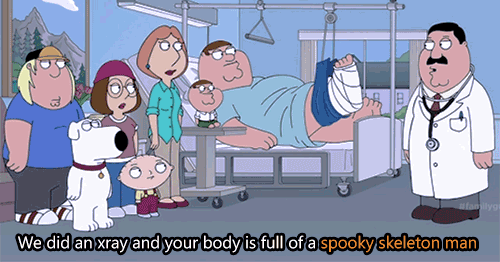

Joe Hartman
Subscribe to our Awesome Newsletter.
Keep Learning
Here are some related guides and posts that you might enjoy next.
How To Have Deep Dive Neuromonitoring Conversations That Pays Off…
How To Have A Neuromonitoring Discussion One of the reasons for starting this website was to make sure I was part of the neuromonitoring conversation. It was a decision I made early in my career... and I'm glad I did. Hearing the different perspectives and experiences...
Intraoperative EMG: Referential or Bipolar?
Recording Electrodes For EMG in the Operating Room: Referential or Bipolar? If your IONM manager walked into the OR in the middle of your case, took a look at your intraoperative EMG traces and started questioning your setup, could you defend yourself? I try to do...
BAER During MVD Surgery: A New Protocol?
BAER (Brainstem Auditory Evoked Potentials) During Microvascular Decompression Surgery You might remember when I was complaining about using ABR in the operating room and how to adjust the click polarity to help obtain a more reliable BAER. But my first gripe, having...
Bye-Bye Neuromonitoring Forum
Goodbye To The Neuromonitoring Forum One area of the website that I thought had the most potential to be an asset for the IONM community was the neuromonitoring forum. But it has been several months now and it is still a complete ghost town. I'm honestly not too...
EMG Nerve Monitoring During Minimally Invasive Fusion of the Sacroiliac Joint
Minimally Invasive Fusion of the Sacroiliac Joint Using EMG Nerve Monitoring EMG nerve monitoring in lumbar surgery makes up a large percentage of cases monitored every year. Using EMG nerve monitoring during SI joint fusions seems to be less utilized, even though the...
MEP Loss With Levetiracetam: Another Anesthetic To Consider With Motor Evoked Potentials
Levetiracetam And Its Effects On Transcranial Motor Evoked Potentials During Surgery Levetiracetam (AKA Keppra) It's pretty widely accepted that inhalational agents and muscle relaxants will reduce the effectiveness of transcranial motor evoked potentials during...

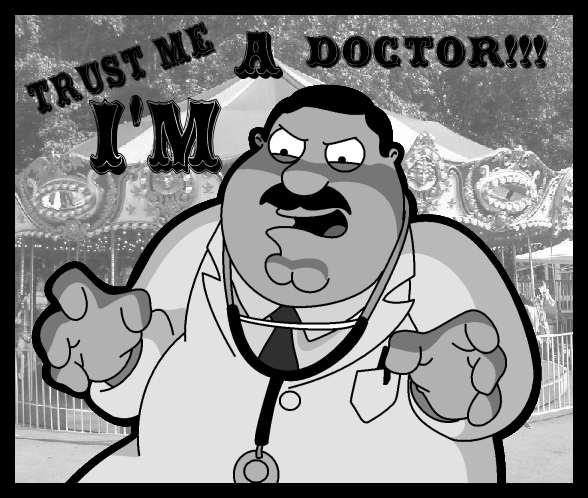
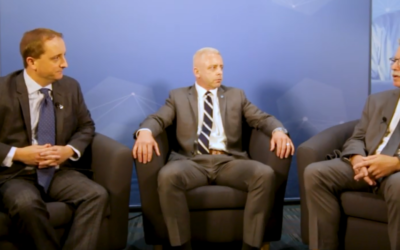
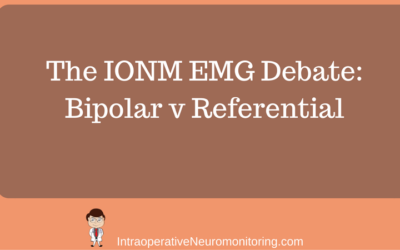
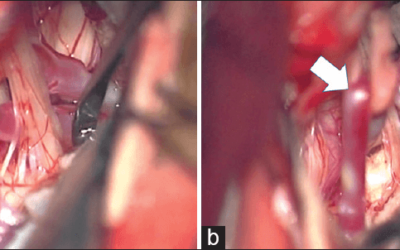
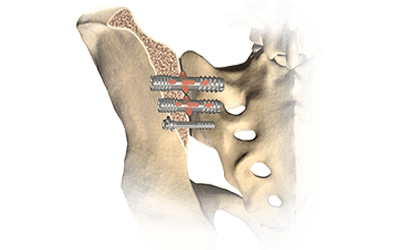


0 Comments